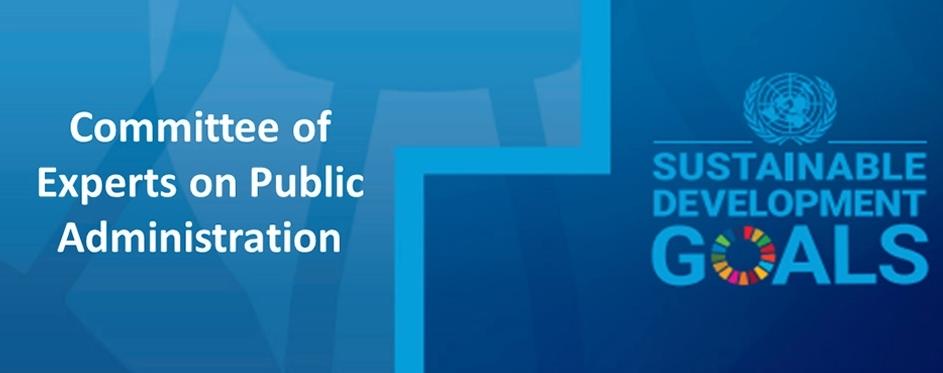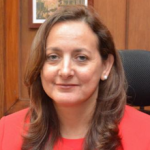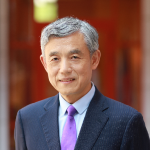Yamini Aiyar is currently Senior Visiting Fellow, Saxena Center for Contemporary South Asia and Watson Institute, Brown University. She was the President and Chief Executive of the Centre for Policy Research (CPR), a leading multidisciplinary think tank in New Delhi from 2017-2024. Ms. Aiyar's work sits at the intersection of research and policy practice. During her tenure she spearheaded the establishment of two important new research initiatives within CPR on State capacity and Politics. Prior to becoming President she set up the Accountability Initiative at CPR known for its work on governance, social accountability and expenditure tracking in social Policy. Ms. Aiyar's research interests span the fields of contemporary politics, state capacity, welfare policy, federalism and India's political economy. She sits on a number of boards and advisory committees of research centers and non-profits. Her recent policy commitments include: Advisory Committee, Weatherhead Center for International Affairs, Harvard University; Member, United Nations Committee of the Experts on Public Administration; Council Member, United Nations University, Member; Chief Minister’s Rajasthan Economic Transformation Advisory Council (2022-2023); Member, Expert Group to Recommend Medium - Long Term Post Covid Strategy for Punjab, Government of Punjab (2021-22); General Body Member, Delhi Board of School Education, Government of Delhi; Advisory Board, Ashank Desai Centre for Policy Studies, Indian Institute of Technology, Mumbai. Ms. Aiyar has published widely both in academic and current affairs journals and newspapers including the Economist, Foreign Affairs, Journal of Democracy, Indian Express, The Hindu. She has a regular column in the Hindustan Times and Deccan Herald, two leading mainstream newspapers in India. Her latest book, "Lessons in State Capacity from Delhi Schools" was published in December 2024 by Oxford University Press.

On 22 July 2021, ECOSOC approved the UN Secretary-General’s nomination of 24 experts of the Committee for a four-year term beginning on 1 August 2021 and expiring on 31 July 2025. On 14 February 2024, the Council subsequently endorsed the appointment of Patricia Arriagada Villouta (Chile) to fill the remaining portion of the term of office held by Marta Acosta Zúñiga (Costa Rica) through 31 July 2025, following the latter’s resignation.
Note by the Secretary-General: Appointment of 24 experts to the Committee of Experts on Public Administration
(E/2021/9/Add.12, 12 May 2021)
Arabic | Chinese | English | French | Russian | Spanish
Note by the Secretary-General: Appointment of one expert to the Committee of Experts on Public Administration
(E/2024/9/Add.14, 23 January 2024)
Arabic | Chinese | English | French | Russian | Spanish

Senior Visiting Fellow, Saxena Center for Contemporary South Asia and Watson Institute, Brown University

Senior Fellow, Hertie School of Governance
Rolf Alter is an experienced economist and Senior Fellow at the Hertie School of Governance, in Berlin. He is a member of the Advisory Board of the World Economic Forum’s Global Risks Report. He spent over 25 years at the Organisation for Economic Co-operation and Development (OECD) in Paris. In 2006, he was appointed Chief of Staff to the OECD Secretary-General and in 2009, he became Director of Public Governance. Dr. Alter built a team of over 200 staff to support governments in improving their public sector performance for inclusive growth and economic competitiveness. He previously worked for the International Monetary Fund, in Washington, D.C., and for the Ministry of Economy of Germany, in Bonn. Dr. Alter’s interests include institutional and regulatory reform, productivity, innovation, results-oriented budgeting, transparency, leadership and integrity. He holds a doctorate from the University of Göttingen. In 2013, he received a doctorate (honoris causa) from the National University of Hungary. In 2016, he was awarded the Onkar Prasad Dwivedi Award by the International Association of Schools and Institutes of Administration for his outstanding contribution to public administration and policy.

Former Deputy Comptroller General of the Republic of Chile
Patricia Arriagada Villouta is a Chilean lawyer, a graduate of the Universidad de Chile with extensive experience in public and administrative law, audits, special investigations and information technology management. She is also a specialist in anti-corruption matters. Her experience has been gained through various positions at the Office of the Comptroller General of the Republic of Chile and in international organizations. Her posts at the Comptroller General’s Office included Head of the Municipalities Division, from 2002; Head of the Administrative Audit Division, from 2006; and Deputy Comptroller General from 2011 to 2016. She also served as acting Comptroller General in 2015. From 2013 to 2016 she was Executive Director of the Organization of Latin American and Caribbean Supreme Audit Institutions (OLACEFS), a regional arm of INTOSAI whose functions include analysing the different realities of public law in the region. Patricia Arriagada Villouta has participated as an expert in assessments conducted in Ecuador, Dominica and Venezuela on the compliance of those countries with the Inter-American and United Nations Conventions Against Corruption. From 2013 to 2019 she was a member of the United Nations Independent Audit Advisory Committee (IAAC), serving as Vice-Chair of the Committee in 2015 and Chair in 2019. In 2015, she was elected member of the Board of Governors of the International Anti-Corruption Academy (IACA), a pro bono role she continues to perform to date. She served as its Chair from May 2022 to May 2023. Ms. Arriagada Villouta currently chairs an arbitration committee responsible for resolving disputes and controversies between infrastructure concessionaires and the Chilean Ministry of Public Works. Since November 2023 she has also served as Vice President of the Commission for Setting the Remuneration of High-level Authorities of Chile, a position for which she was proposed by the President of the Republic and approved by the Senate of the Chilean Republic. In December 2022, she received the Distinguished Alumni Award of the Nido de Aguilas Alumni Association.

Senior Lecturer in Public Policy, Kennedy School of Government, Harvard University
Linda J. Bilmes is a leading expert on budgeting and public finance. She is a full-time faculty member at Harvard University, teaching public finance, regional finance and budgeting. She leads the university’s training in public finance for newly elected United States members of Congress and mayors. Ms. Bilmes was twice confirmed as Assistant Secretary and Chief Financial Officer of the United States Department of Commerce by the United States Senate. She is currently a Presidential appointee on the National Park System Advisory Board of the United States Department of the Interior. She serves on the Boards of Directors of the Institute for Veterans and Military Families at Syracuse University and Economists for Peace and Security, a distinguished body dedicated to promoting non-military solutions to world challenges. Professor Bilmes has authored or co-authored numerous books, book chapters and articles on the costs of war, the value of public lands, conservation, and finance. She has published “Total Economic Valuation of the National Park Service Lands and Programs” (2016), which established an economic value of United States national park assets for the first time. Her work has been published in a number of prominent newspapers, magazines and other publications. She was the recipient of the 2008 “Speaking Truth to Power” Award by the American Friends Service Committee. Previously, she was a Principal in London, Madrid and Moscow with an international management consulting firm. She is a member of the Council on Foreign Relations and a Fellow of the National Academy of Public Administration, both based in the United States. She holds a BA and MBA from Harvard University and a D. Phil in Public Policy from the University of Oxford, in the United Kingdom of Great Britain and Northern Ireland.

Professor, Institute of Statistical, Social and Economic Research, University of Ghana
Augustin K. Fosu is a Professor at the Institute of Statistical, Social and Economic Research at the University of Ghana. He holds a number of honorary appointments, including Extraordinary Professor, Faculty of Economic and Management Sciences at the University of Pretoria, in South Africa; Distinguished Visiting Professor in the College of Business and Economics at the University of Johannesburg, in South Africa; and Research Associate at the Centre for the Study of African Economies at the University of Oxford, in the United Kingdom. Professor Fosu is a development economist with a particular interest in the relationship between institutions, growth and human development; debt, growth and optimal public sector allocation; trade, growth and development; and growth, inequality and poverty. His previous positions include Deputy Director, World Institute for Development Economics Research of the United Nations University, in Finland; Senior Policy Adviser/Chief Economist, Economic Commission for Africa, in Ethiopia; and Director of Research, African Economic Research Consortium, in Kenya. Professor Fosu is Editor-in-Chief of the Journal of African Trade; managing editor of the Journal of African Economies (Oxford) and a member of the editorial boards of many other journals, including Journal of Development Studies, Oxford Development Studies, World Bank Economic Review and World Development. He has served in numerous advisory and consulting capacities for international organizations and on the Economic Advisory Council of the President of Ghana. He holds a PhD in economics from Northwestern University, in the United States.

Professor of Public Administration, Faculty of Economics and Political Science, Cairo University
Sherifa Fouad Sherif is a Professor of Public Administration at the Faculty of Economics and Political Science of Cairo University. She is the Executive Director of the National Institute for Governance and Sustainable Development, the training arm of the Ministry of Planning and Economic Development. Dr. Sherif was the Executive Director of the National Management Institute from 2018 to 2020. She was the Vice-Dean for Environment and Community Services and Chairperson for the Public Administration Department at Future University, in Egypt, and an Adjunct Professor at several universities in that country. From 2015 to 2018, she was the Head of the Public Administration Research and Consultation Center at the Faculty of Economics and Political Science of Cairo University. Dr. Sherif has been teaching for more than 20 years in the areas of public administration, management, corporate social responsibility, sustainable development, social entrepreneurship, environmental management, gender and governance. She has published many research papers and articles in both national and international journals in her areas of specialization and was granted the Best Paper Award for several of her publications. Dr. Sherif has worked with multiple international organizations as a researcher and lead consultant on projects related to gender equality, the empowerment of women, good governance, administrative reform, sustainable development and environmental management. She was appointed in 2017 as a member of the Egyptian National African Peer Review Mechanism Committee, as well as the Egyptian National Coordinator for the Public Governance Committee of OECD. Dr. Sherif has a Bachelor of Arts degree in Business Administration and a Master of Public Administration degree from the American University, in Cairo, as well as a PhD from the University of Sussex, in the United Kingdom.

Chancellor, Nelson Mandela University, South Africa
Geraldine Joslyn Fraser-Moleketi is the Chancellor of Nelson Mandela University. She was the former Special Envoy on Gender at the African Development Bank. In this role, she led a strategy to mainstream gender in the Bank’s policies and operations, making the Bank a reference institution on gender equality in Africa. She was previously Director of the Democratic Governance Group of the United Nations Development Programme, with activities in more than 170 countries, supported from six regional service centres. She served in the South African Government as Minister of Public Service and Administration for two consecutive terms. As Minister, she led the development of a senior management service within the South African public service; oversaw a comprehensive review of the public service remuneration system; revitalized the “Batho Pele” strategy within the public service; and established the Government Employees Medical Scheme and Public Administration Leadership and Management Academy. She also served as Chair of the Pan African Ministers of Public Service for three consecutive terms and has worked on intergovernmental bodies globally and in Africa. While Minister for Public Service and Administration, she served as a member of the United Nations Committee of Experts on Public Administration. As Minister for Welfare and Population Development in the first democratic Government of South Africa, she introduced the Government’s white papers on social welfare (1997) and on population policy (1998) in the Parliament, worked on the development and implementation of the Child Support Grant and chaired the Ministerial Team on Children and Youth at Risk. She served as Deputy Minister of Welfare and coordinated the country’s preparations for the Fourth World Conference on Women, held in Beijing in 1995. Ms. Fraser-Moleketi also served as Deputy Leader of the South African delegation to the Conference and represented South Africa at the World Summit for Social Development in Copenhagen in 1995. In addition, she served as member of the South African Parliament for three consecutive terms, from 1994 until her resignation in September 2008, and was a member of the Constituent Assembly and various subcommittees responsible for drawing up the South African Constitution adopted on 8 May 1996. She served on the Management Committee of the Convention for a Democratic South Africa and was Deputy National Coordinator of the National Elections Commission of the African National Congress in preparation for the country’s first democratic elections. Mrs. Fraser-Moleketi serves on various boards across academia, government and development organizations on issues related to youth, the empowerment of women, capacity development and education, governance and poverty eradication. She also serves as non-executive director on the boards of listed companies. She is a fellow of the Institute of Politics at the Kennedy School of Government of Harvard University, and holds a Master’s Degree in Administration. Mrs. Fraser-Moleketi was named 2016 New African Woman of the Year and was conferred a Doctorate of Philosophy (Honoris Causa) by the Nelson Mandela Metropolitan University, Port Elizabeth, South Africa.
Programme Director, British Academy and Professor, School of Government and Society, University of Birmingham
As Programme Director for the British Academy, Paul Jackson oversees the commissioning and work of social science research that contributes towards achieving the Sustainable Development Goals. He is a political economist working predominantly on conflict and post-conflict reconstruction. A core area of interest is decentralization and governance, and it was his extensive experience in Sierra Leone immediately following the war that led him into the area of conflict analysis and security sector reform. He was Director of the Global Facilitation Network for Security Sector Reform and is currently an adviser to the Governance and Social Development Resource Centre, which engages him in wide-ranging policy discussion with donor agencies engaged in these activities, including the United Kingdom and various other European Governments, the European Union, the United Nations and the World Bank. Until July 2010, Mr. Jackson was also Head of the School of Government and Society, where he managed five academic departments and some 200 staff across political science and international studies, local government studies, sociology, Russian and European studies and international development. He remains a board member of the Institute for Conflict, Cooperation and Security, a member of the University’s Cybersecurity Committee and Chair of the University’s Chaplaincy Committee. Mr. Jackson also works in several countries, for institutions ranging from the World Bank to local civil society organizations, including in Bhutan, China, India, Iraq, Nepal, Rwanda, Sierra Leone, Uganda and Zimbabwe, among others. He has worked as an aid evaluator and a governance and conflict analyst.

Vice-Rector for Strategic Development, Research and International Partnership, Academy of Public Administration of Kazakhstan
Aigul Kosherbayeva was appointed as the Vice-Rector for Strategic Development, Research and International Partnership of the Academy of Public Administration of Kazakhstan in September 2018. Since 2014, she has held various positions at the Academy of Public Administration, including as Director of the Institute for Applied Research, Deputy Rector of strategic development, research and international partnership, Associate Professor and Professor at the Institute of Management. Ms. Kosherbayeva began her career in 1991 as a research assistant at the Department of Economic Theory at Al-Farabi Kazakh National University. From 1995 to 2001, she worked as the lecturer at the Department of International Economic Relations; from 2001 to 2002, as the Director of the Centre for World Market Studies at the Economic Research Institute; from 2005 to 2012, as the Director of the project analysis and evaluation group of Kazmunaygas Consulting, as Senior Manager of United Chemical Company of Samruk-Kazyna and as Director of the Centre for the Development of Manufacturing Industries at the Kazakhstan Institute of Industry Development. From May 2012 to October 2016, she held several positions at the Economic Research Institute of the Ministry of National Economy of the Republic of Kazakhstan, including as Director of the Centre for World Economy and Integration Studies and as Director of the Centre for Regional and Social Analysis. Ms. Kosherbayeva holds a PhD in Economic Science from Kazakh National University.

Under Secretary for Policy, Planning and M&E, Department of Education of the Republic of the Philippines
Ronald U. Mendoza is Under Secretary for Policy, Planning and M&E for the Department of Education of the Republic of the Philippines. He is a governance and institutional reforms specialist with over 25 years of experience in economic development policy and public administration reforms. Mendoza served as Dean and Professor of Economics with the Ateneo School of Government, from 2016 to 2022. Between August 2020 and July 2022, he also served as Chief of Party of PARTICIPATE, a three-year USAID project focused on supporting citizens’ participation in governance and strengthening democratic and governance institutions. Throughout 2022 and 2023, Mendoza served as Regional Director for Southeast Asia at IDInsight, a global advisory, data analytics, and research organization seeking to improve lives with the use of data and evidence. From 2011 to 2015, he was an Associate Professor of Economics at the Asian Institute of Management (AIM), and the Executive Director of the AIM Rizalino S. Navarro Policy Center for Competitiveness. His research background includes work with UNICEF, UNDP, the Federal Reserve Bank of Boston, the Economist Intelligence Unit (EIU), and several Manila-based non-governmental organizations. In 2022 and 2023, Mendoza was listed among the Philippines’ top 100 scientists in the AD Scientific Index based on the total number of citations in the last 5 years. Mendoza obtained his Bachelor’s Degree in Economics (Honors Program) from the Ateneo de Manila University in the Philippines, his Masters in Public Administration and International Development (MPA-ID) from the John F. Kennedy School of Government, Harvard University, and his M.A. and Ph.D. in Economics from Fordham University.

Visiting Professor at Public Governance Institute, KU Leuven, Senior Fellow at University of Massachusetts and Research Associate at Wageningen University
Louis Meuleman is Visiting Professor at the Public Governance Institute, KU Leuven and Senior Fellow at University of Massachusetts and Research Associate at Wageningen University. Until December 2020, he worked at the European Commission in Brussels as coordinator of the Environmental Implementation Review and of the greening of the European Union’s economic and social governance. He publishes on sustainability metagovernance and public management. He is also member of the editorial board of Impact Assessment and Project Appraisal. He is a member of the International Association for Impact Assessment, the European Sustainable Development Network and the Netherlands Association for Public Management. He has 35 years of public sector management experience, handling subnational, national, regional and international issues, mainly in the fields of the environment and sustainable development, as project, programme and line manager. As director of the TransGov project of the Institute for Advanced Sustainability Studies in Potsdam, Germany, from 2010 to 2011, he produced the report entitled Transgovernance: the Quest for Sustainability Governance and was editor of Transgovernance: Advancing Sustainability Governance (2013). He was director of the Netherlands Advisory Council for Research on Spatial Planning, Nature and Environment, in The Hague, and Chair of the Netherlands Association for Public Management. Mr. Meuleman has authored a number of publications, including his PhD dissertation, Public Management and the Metagovernance of Hierarchies, Networks and Markets (2008) and the practitioners’ case study entitled The Pegasus Principle: Reinventing a Credible Public Sector (2003). He was co-editor of Environmental Governance in Europe (2003). He has published books, book chapters and articles on environmental policy, interactive policymaking, metagovernance, governance of long-term decision-making, cultural diversity and sustainability governance. He has a PhD in public administration and an MSc in environmental biology.

Director, Institut des finances Basil Fuleihan, Ministry of Finance, Lebanon
Lamia Moubayed Bissat currently presides over the “Institut des Finances Basil Fuleihan”. She teaches public governance at the Saint Joseph University in Beirut and Governance and Gender at the American University of Beirut. Ms. Moubayed holds an M.Sc. degree from the American University of Beirut and Professional Certificates in Strategic Policy Planning and in Strategic Management and Leadership from the UK. She previously worked in private consulting and with UN agencies. Her 20 years multidisciplinary experience in Lebanon and the MENA region is focused on sustainable development and quality of government with particular emphasis on public sector reform, budget transparency and public procurement. She authored and contributed to many publications including academic articles, policy notes, books and guides. She founded the semi-peer reviewed journal “Assadissa”-Journal of Public Finance and State Building. Ms Moubayed is a founding member of the network of schools of governance in the Middle East Africa region (GIFT-MENA 2006) and of the Network of Researchers in Public Administration (MENAPAR 2013). She was elected (2016) to the board of the "International Association of Schools and Institutes of Administration" and is a regular participant in the MENA-OECD initiative on governance and competitiveness. Ms. Moubayed was awarded the highest French distinction of “Légion d’Honneur” (2015) and the prestigious “Chevalier de l’Ordre National du Mérite” (2004) for her contribution to the development of cooperation ties between France, Lebanon and the MENA region, and her commitment to advancing the values of state building and the rule of law. She is a fervent supporter of women's talents and has put forth her commitment on many occasions. She is also a strong believer in the changing force of a financially literate youth.

Professor of Public Finance and Public Management, Masaryk University and President of the Network of Institutes and Schools of Public Administration in Central and Eastern Europe
Juraj Nemec is full-time Professor of Public Finance and Public Management at the Faculty of Economics and Administration at Masaryk University in Brno, Czech Republic, and part-time Professor at the Faculty of Economics at Matej Bel University in Banská, Bystrica, Slovakia, with 35 years’ experience in teaching at the pre-graduate, graduate and doctoral levels. In 2016, he was elected as the President of the Network of Institutes and Schools of Public Administration in Central and Eastern Europe. Since 2013, he has been the Vice-President of the International Association of Schools and Institutes of Administration and the project director of the Association’s permanent working group. He served as the regional Vice-President of the International Research Society for Public Management during 2010-2017 and as a member of the Accreditation Committee of the European Association for Public Administration Accreditation until 2015 and is now a Board member of the Association. He is the representative of the Slovak Republic in the Group of Independent Experts on the European Charter of Local Self-Government connected to the Council of Europe. Mr. Nemec has published over 400 books and scientific articles in this field and filled several academic posts, including the position of Dean of the Faculty of Finance. In 2010, he received the NISPAcee Alena Brunovska Award for his research. In 2016 he received the Donald C. Stone Award honouring a distinguished international scholar for advancing the well-being of IASIA. Mr. Nemec also has extensive advisory and consultancy expertise in various transition countries. In his assignments in Albania, Bosnia and Herzegovina, Georgia, Kazakhstan, Kosovo, Macedonia, Moldova, Montenegro, Romania, Serbia and Ukraine, he provided activities in the field of public procurement as well as assistance in institution building and development. As a key advisor to the Governments of Slovakia and the Czech Republic, he supported all levels of public administration in the areas of public administration reform, health-care reform and the improvement of public procurement systems, prior to and after their accession to the European Union. In this position, he co-drafted the first public procurement law in Slovakia.

Professor, Faculty of Mathematics and Faculty of Political Science, University of Zagreb and Senior Research Advisor, Institute of Public Finance, Zagreb
Katarina Ott is a Senior Research Advisor at the Institute of Public Finance, Zagreb and Professor at the Faculty of Mathematics and the Faculty of Political Science, University of Zagreb, teaching public sector economics, fiscal federalism and European Union-induced economic and institutional transformations. She has been researching the relationship between government and the economy, the budget, the public sector and public administration reforms, local finances, the underground economy, European Union integration and in particular public sector transparency, government accountability and citizen participation. She has headed projects and published articles in the area of public sector economics (particularly on local government budget transparency, public participation in fiscal policy and budget processes, European Union integration, the administrative and compliance costs of taxation and tax administration reforms) and has been engaged in producing citizens’ guides to the national and subnational budgets. She has represented the Institute of Public Finance in the Global Initiative for Fiscal Transparency; has been a member of the Council of the Open Government Partnership for Croatia; a member of the Steering Committee of the Global Civil Society Movement for Budget Transparency, Accountability and Participation and its representative for Europe; participated in the International Budget Partnership’s Open Budget Survey, etc. She was a member of the Economic Council of the President of Croatia, of Government committees (e.g. for pension reform, for the development of islands) and of management boards of the Croatian Retirement Fund and of the Zagreb University.

Professor, Graduate School of Public Administration, Seoul National University
Soonae Park has been a Professor at the Graduate School of Public Administration at Seoul National University since 2004 and, since 2014, Director of University’s Public Performance Management Research Centre. She serves as the 2021 President of the Korean Association for Public Administration and as a member of the Presidential Committee on Regulatory Reform. Before joining the University, she worked as a Researcher at the Seoul Development Institute and in intelligent transportation systems at the University of Michigan, in the United States. She has been deeply involved as a committee member and consultant in the performance evaluation initiatives of various governments and public institutions since 2003. She has been a member of the Steering Committee of Public Institutions, as well as a Director of the Evaluation Group for Public Institutions under the Ministry of Strategy and Finance of the Republic of Korea. She has served as a member of diverse environmental advisory committees, including the Korean Presidential Commission on Sustainable Development and the Korean Federation for Environmental Movements. She was awarded a PhD in Environmental Planning from the University of Michigan in 1998. Her recent research includes studies on regulatory reform in the era of new technological development (2020), ministerial leadership and endorsement of bureaucrats (2020), the moderating effect of demographic and environmental factors in the spread and mortality rate of the coronavirus disease (COVID-19) during peak and stagnant periods (2020), the growth effects of fiscal decentralization with weak economic motivation (2019) and public management in Korea, with a focus on performance evaluation and public institutions (2018).

Vice-Dean for Academic Affairs and Professor of Public Administration and Government, Brazilian School of Public and Business Administration, Getulio Vargas Foundation
Alketa Peci is the Vice-Dean for Academic Affairs and a professor of Public Administration and Government at the Brazilian School of Public and Business Administration at the Getulio Vargas Foundation, in Rio de Janeiro. Currently, she serves as the Editor-in-Chief of the Journal of Public Administration (Revista de Administração Pública), which was launched in 1967 and published in three languages. Dr. Peci’s research interests relate to the study of bureaucracy and its contemporary transformations. She has done empirical research on autonomous bureaucracies as independent regulatory institutions and audit offices, on bureaucratic representation and its intersections with reputation and administrative burdens and on networks with non-profit and private partners and major bureaucratic reforms. She has published books, several book chapters and numerous articles in international and national journals, such as Regulation & Governance, Public Management Review, Utilities Policy, Voluntas, International Review of Administrative Sciences, Organization, Public Administration and Development, Revista de Administração Publica and Revista de Administração de Empresas, among others. She received her doctoral degree in administration from the Brazilian School of Public and Business Administration at the Getulio Vargas Foundation in 2005. From 2018 to 2019, she held a visiting appointment at the London School of Economics and Political Science. Since 2015, she has been a visiting professor of comparative public administration at the University Institute of Lisbon, in Portugal.

Visiting Fellow, University of Pennsylvania; Former mayor of Quito, Ecuador
Mauricio Rodas is a Visiting Fellow at the University of Pennsylvania, where he launched and co-directs the City Climate-Resilient Infrastructure Financing Initiative through the Penn Institute for Urban Research, the Perry World House and the Kleinman Center for Energy Policy. The Initiative is aimed at developing a knowledge hub to consolidate information on financing opportunities for cities and facilitating access to these resources. Mr. Rodas is working on a broad partnership with city networks, international financial institutions, the World Economic Forum, the private sector and others. He served as a member of the Global Future Council on Cities and Urbanization of the World Economic Forum from 2016 to 2019 and, in 2019, was named one of the 100 world’s most influential people on climate action by Apolitical. He has also received an Urban Leadership Award from the University of Pennsylvania. From 2014 to 2019, Mr. Rodas served as Mayor of Quito, during which time Ecuador hosted the United Nations Conference on Housing and Sustainable Urban Development (Habitat III). He has had an active leadership role in the main city networks: two terms as Co-president of the World Organization of United Cities and Local Governments and a member of the boards of the C40 Cities Climate Leadership Group, Local Governments for Sustainability and the Global Covenant of Mayors for Climate and Energy. In 2011, Mr. Rodas founded SUMA, a national political party. He worked as a policy consultant for the Government of Mexico from 2004 to 2007 and, in 2007, founded and served as the Executive Director of Ethos Public Policy Lab, a think tank based in Mexico. Mr. Rodas began his professional career in 2003 as a Fulbright Fellow at the Economic Commission for Latin America and the Caribbean. He holds a Juris Doctor degree from the Universidad Católica de Quito and two master’s degrees, in government administration and political science, from the University of Pennsylvania.

Executive Director, Caribbean Centre for Development Administration, Barbados
Devon Rowe is Executive Director of the Caribbean Centre for Development Administration. In 2014, he was acknowledged for his work and contribution to public service by the Government of Jamaica and received the Order of Distinction, Commander Rank. His career has spanned various government organizations and he has represented the Government of Jamaica at high-level international meetings. A career public servant, he was appointed Permanent Secretary at the Ministry of Local Government and Community Development in 2005, where he played a lead role in local government reform in Jamaica. Mr. Rowe was later assigned as Director General in the Office of the Prime Minister. In 2010, he was assigned as Director General in the Ministry of Finance and Planning, with the main responsibility of centralizing treasury management operations. Between 2011 and 2012, he briefly performed dual roles as Commissioner at the Jamaica Customs Department and Director General of the Ministry of Finance and Planning. He later returned to the Ministry of Finance and Planning as Director General. Mr. Rowe served as Financial Secretary in the Ministry of Finance and Planning between 2012 and 2016. During his career, he has been appointed to the boards of several public sector companies in investment, development finance, infrastructure and health. He holds a Bachelor’s degree in Management from the University of the West Indies and a Master’s degree in Public Administration from the Kennedy School of Government at Harvard University.

Head of Division, Digital, Innovative and Open Government, Public Governance Directorate, Organisation for Economic Cooperation and Development
Carlos Santiso is Head of the Digital, Innovative and Open Government Division, Public Governance Directorate at the Organisation for Economic Cooperation and Dvelopment. Previously, he held the position of Director of the Digital Innovation in Government Directorate of the Development Bank of Latin America and was based in Bogotá. He is a member of the Advisory Committee of the World Economic Forum’s Future of Trust and Integrity Project, part of the Partnering Against Corruption Initiative. Prior to this, he led the Innovation for Citizen Services Division of the Inter-American Development Bank, which he joined in 2011 to manage the institutional capacity of the State Division, based in Washington, D.C. He served as Sector Manager for Governance at the African Development Bank, based in Tunis, between 2007 and 2011. He was a governance adviser to the Department for International Development of the United Kingdom in Lima and Glasgow between 2002 and 2007. Mr. Santiso served as a senior programme officer at the International Institute for Democracy and Electoral Assistance, based in Stockholm, between 1996 and 2000. He started his professional career at the Office of the Prime Minister of France, in Paris, in 1995 and 1996. He has written extensively on digital government, democratic governance, corruption prevention and foreign aid.

Dean, School of Governance and Politics, Moscow State Institute of International Relations, Russian Federation
Henry Sardaryan is Dean of the School of Governance and Politics at the Moscow State Institute of International Relations and a member of the academic councils of both the School and the Institute. Mr. Sardaryan teaches modern public administration as well as the theory and practices of public administration. Since 2012, he has been a full-time lecturer at the International Institute of Administration at the Moscow State Institute of International Relations. In 2018, he was also appointed as Professor at the Academy of Military Sciences in Moscow and, since 2015, he has been Visiting Professor at the University of Macerata, Italy. Mr. Sardaryan serves on the editorial board of the Russian Journal of Law and Administration. His main areas of research are the political systems of European Union countries, public administration and political theory, and he has authored numerous publications on these topics. He holds the equivalent of a PhD in Political Science from the Moscow State Institute of International Relations and has completed post-doctoral work in Political Science at Lomonosov Moscow State University.

Chief Minister and Chief Innovation Officer, Government of Sierra Leone
David Moinina Sengeh was appointed Chief Minister and Chief Innovation Officer in July 2023. Prior to this, he served as Cabinet Minister of Basic and Senior Secondary Education in November 2019 and Chief Innovation Officer in the Directorate of Science, Technology and Innovation of the Government of Sierra Leone since 2018. From 2016 to 2018, before joining the Government, Dr. Sengeh worked as a research scientist and later as a manager at IBM Research Africa, where he led the health-care team to design and implement applied artificial intelligence systems for the prevention, diagnosis, treatment and management of disease in Africa. Dr. Sengeh completed his Ph.D. at the Media Lab at the Massachusetts Institute of Technology, where his research was focused on the intersection of medical imaging, computer-aided design and multi-material three-dimensional printing. He invented low-cost, wearable mechanical interfaces that improved prosthetic comfort for amputees. Dr. Sengeh has published articles in several academic journals and is a holder of patents in the prosthetics and artificial intelligence fields. While conducting his Ph.D. research, Dr. Sengeh co-founded and was President of Global Minimum, a non-governmental organization that develops platforms to foster innovation and learning, focusing on high school students in Sierra Leone and Kenya. He is an Obama Foundation Africa Leader, a Senior Technology, Entertainment and Design (TED) Fellow, a National Geographic Emerging Explorer and a musician.

High Representative of the President of the Republic of Senegal
Aminata Toure has been appointed High Representative of the President of the Republic of Senegal in August 2024. Dr. Toure served as the Prime Minister of Senegal from September 2013 to July 2014 and subsequently as Special Envoy of President for Internal and External Affairs. She was Justice Minister from 2012 to 2013, during which time she focused on anti-corruption campaigns. Since 2014, she has led several Presidential election observation missions, including in Côte d’Ivoire, Kenya, Liberia and Mauritius, where she co-led the first round of the election observation mission on behalf of the Carter Center, based in the United States. Dr. Toure held the position of Fisher Family Fellow with the Future of Diplomacy Project at the Kennedy School of Government at Harvard University in the 2018–2019 academic year. She was Director of the Gender and Human Rights Department of the United Nations Population Fund (UNFPA) from 2009 to 2012, a Senior Adviser at UNFPA from 2003 to 2009, an UNFPA Senior Adviser in Côte d’Ivoire from 1998 to 2001 and an UNFPA Senior Adviser in Burkina Faso from 1996 to 1997. Her areas of competence include economy, good governance and gender. Dr. Toure has led the preparation of more than 30 UNFPA global publications. She holds a PhD in International Business Administration and Finance and a Master’s degree in Economics from the University of Burgundy, in France.

Cheung Kong Chair Distinguished Professor and Dean, Schwarzman College, Tsinghua University
Lan Xue is a Cheung Kong Chair Distinguished Professor and Dean of Schwarzman College at Tsinghua University. At that university, he also serves as a Deputy Director of the Strategic Research Institute for Engineering, Science and Technology, Director of the China Institute for Science and Technology Policy and Co-Director of the Global Institute for Sustainable Development Goals. His teaching and research interests include science, technology and innovation policy, crisis management and global governance. From 2000 to 2018, he served as Associate Dean, Executive Associate Dean and Dean of the School of Public Policy and Management at Tsinghua University. He also serves as the following: Convener of the State Council Public Administration Disciplinary Review Committee, a member of the National Committee for Strategic Consultation and Comprehensive Review, Director of the Professional Committee of New Generation Artificial Intelligence, a member of the Advisory Group of the Directorate for Science, Technology and Innovation of OECD, an adjunct professor at Carnegie Mellon University, a non-resident senior fellow of the Brookings Institution and Co-chair of the Leadership Council of the Sustainable Development Solutions Network. He is a recipient of the Fudan Distinguished Contribution Award for Management Science and of the Distinguished Contribution Award from the Chinese Association of Science and Technology Policy. He holds a PhD in Engineering and Public Policy from Carnegie Mellon University.

Director, Development Branch and African Local Government Academy, United Cities and Local Government of Africa
Najat Zarrouk is the Director of the Development Branch and of the African Local Government Academy of the United Cities and Local Government of Africa, based in Rabat, where she has been working since 2016. She has 39 years of experience in public service at the national, regional and global levels, notably as a former civil servant of the Ministry of the Interior of Morocco, where she served from 1983 to 2014, including as Governor and Director of Training. In 2019, she was elected as a member of the Board of the International Association of Schools and Institutes of Administration for the 2019–2022 term. In February 2020, after her election by the Board of Management of the Association, she was appointed Chairperson of the International Commission on Accreditation of Public Administration for education and training programmes of the Association. In 2018, she was elected Vice-President of the African Public Service Human Resources Managers Network. She served as a Member of the Board of the Arab Women’s Leadership Institute from 2009 to 2012 and as a member of Women’s Democracy Network, which was supported by the Government of the United States to empower women in the Arab region. She has authored a number of essays and articles on issues related to public administration and public service. In 2008, she published a book on trade and development, from the General Agreement on Tariffs and Trade to the World Trade Organization. She has received a number of recognitions and awards for her commitment to public service, including the Onkar Prasad Dwivedi Award from the International Association of Schools and Institutes of Administration, for her contribution to public administration and public policy, and the Gold Medal 2018 from the African Association for Public Administration and Management. She received her PhD in Political Science from the University Mohammed V, in Rabat. She is also a graduate of the National School for Public Administration, in Rabat (student honours) and of the University of Paris I (Panthéon-Sorbonne).
 Welcome to the United Nations
Welcome to the United Nations
